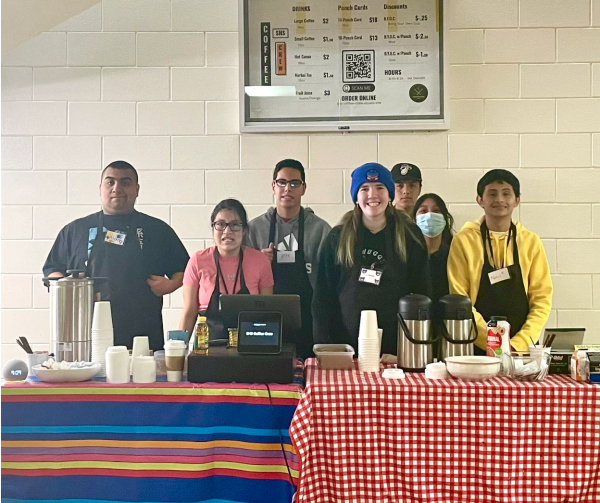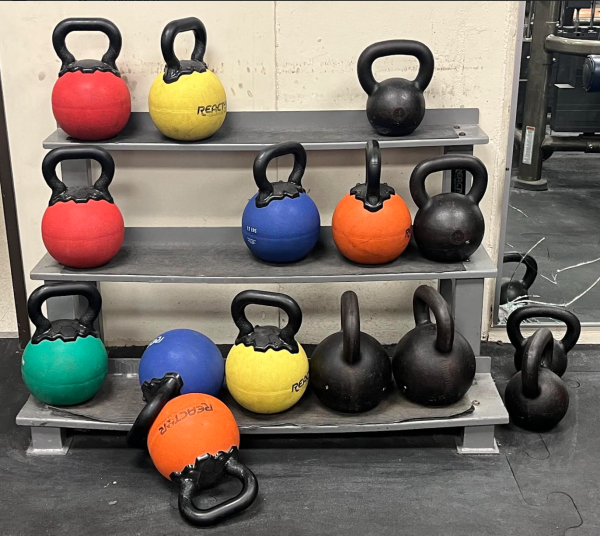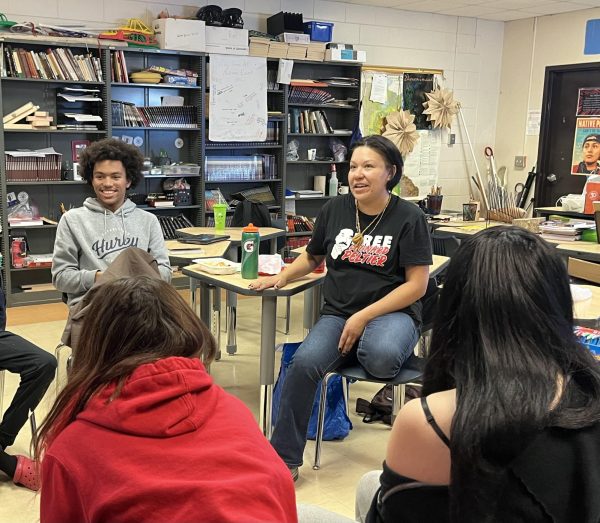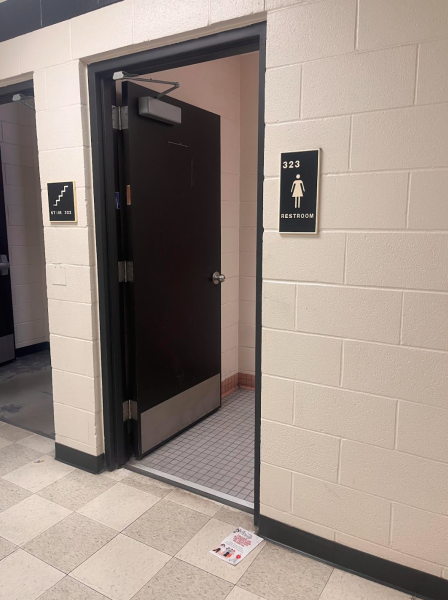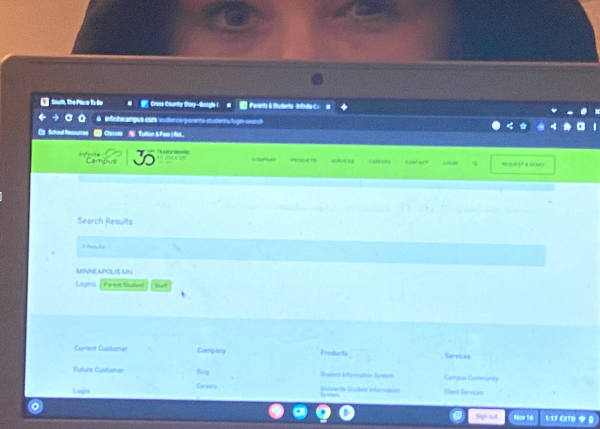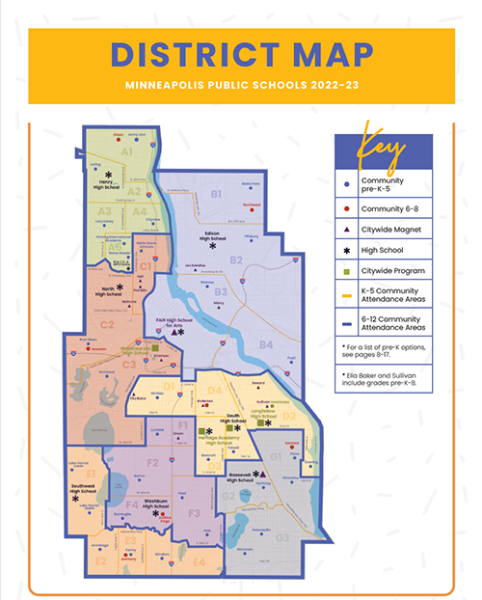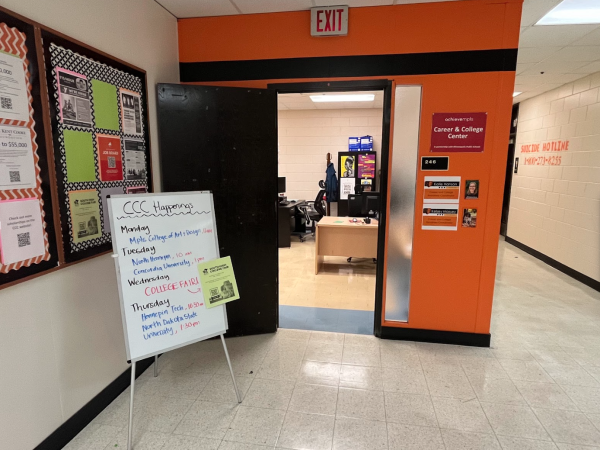Parent/child relationships add a different dynamic in a classroom setting
April 22, 2014
Students enjoy the convenience of having a parent at school
“If I was bullied…it was kind of nice because then I could be like ‘this person was mean to me,’ and then she’d… get mad at them and stuff,” said freshman Jo Alterini, who attended Lake Country, the school at which her mom teaches, until last year.
Having a parent around often benefits students in many ways. They are there to support their child and provide assistance with problems at school. Senior Frankie
Willette, whose mother teaches Spanish at South, said “It’s handy having her there, because say I don’t have lunch money I can go up and beg her for lunch money… rides to and from school too, it helps.”
Having your mom or dad constantly in the same building can also feel awkward, both with your parent and with other students. “I really didn’t want my mom to be at the same school, I was like ‘just leave me alone.’ And I had to go to camp … she was at the camp with me, and that wasn’t very fun,” Alterini explained.
Willette disagreed. For him, spending a lot of time with his mom isn’t unusual. “She’s always been here since I’ve been here… And my older brother went to South with her here, so it’s just always been a part of me being here at South,” he said. His mom has taught at South for much of his life, and being in class with her isn’t too different from being at home.
Willette did notice some differences, though. “She treated me just like everybody else… [but] she would clown me a little bit more often and call me out a bit more often because she didn’t really have to worry about hurting my feelings. She could kinda push it a bit with me.”
A parent who works at South is more likely to know about the school’s many assets and advantages, drawing their children towards it. Students’ choices, in this case, are often heavily influenced by their parents’ opinions.
Willette says a main factor in his high school decision was his mother working at South. “I live over in Northeast, so we didn’t really like other city schools, and South was really great. My mom knew that… so she wanted us to come here and it just all worked out,” he explained.
Other students at school can react in varying ways to having their peer’s mom or dad as a teacher. Some are more mature than others, while many seem to equate the child with the parent. “It was more of an underclassman thing… everybody would say ‘oh, you’re Profe Willette’s [son], or just things like that,” said Willette. Alterini’s classmates were also somewhat immature about the situation. She said that “if they were mad at my mom, they would be all cautious near me.”
Students seem to have similar relationships with their parents at home and at school. While classmates have varying responses, the adults usually know how to handle the situation professionally.
Teachers who are parents try to keep a formal relationship
“An advantage is that I can keep track of their movements – I generally know what they are doing on any given day,” wrote Sheila Willette about her children in an email. Willette is a Spanish teacher and mother of two current South students and one graduate (as well as one prospective Tiger).
But the kids aren’t always happy about this: “They don’t always want me to know about their movements,” Ms. Willette continued. She understands that her sons aren’t enthusiastic about her being included in every moment of their personal lives.
Having a ride to school also means more time with one’s children. Ms. Willette explained, “working at the same school that my kids attend has made transportation much easier than if we were headed to different schools every day, but it makes for a lot of mom time, something that may be welcomed on some days and dreaded on others.” If you’re headed to the same place, there is much less to figure out in terms of logistics.
South is a popular choice of school in Minneapolis, so it draws people like the Willettes regardless of their connections to the school. “I think my kids were inclined initially (with my oldest son) by the Liberal Arts program that South offered,” Ms. Willette explained. “I don’t think [my oldest son] selected South because I work here – it just was his favorite of all the high schools he visited. For the other kids, I think having an older sibling at South was the clincher.”
Regarding the application process, Ms. Willette wrote, “I have no idea how my employment status affected my kids’ high school application process except that there is a little box that I checked on the high school choice card that indicated I am a district employee.”
Conscious of their effect on every student, teachers who also are parents think about how they act around their children in comparison to their other students. “I think I do treat them differently – I try to pretty much ignore them in class unless they really need something. This makes them less of a focus for other students and doesn’t make it seem like I give them special treatment,” wrote Ms. Willette. Willette tries to make sure no student feels left out because her own children are also in the classroom.
However, many a time other students don’t learn about Willette’s family ties until late in the year. “Often times it has taken many of my students half the year to realize that I have had one of my sons in my class so in those cases, no, I don’t think my students have behaved differently around me,” Ms. Willette explained. “Many of my sons friends have been in my classes and they have all been great – but I am not in the position to say whether or not they have treated me differently from other South High teachers.”
As the interactions between teachers and students are typically more formal than those between family members, parents who teach their children keep this in mind during class.




